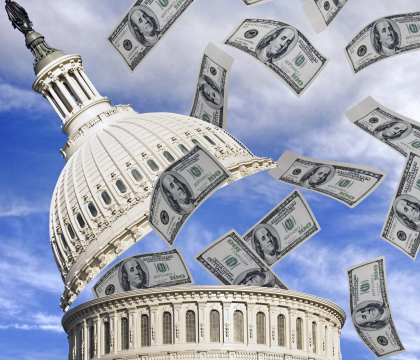The Institute for Policy Innovation (IPI) was created in 1987 to analyze and promote pro-growth economic policies, stressing the importance of free markets, low taxes, and limited government.
IPI focused primarily on tax policy for a decade but eventually expanded into other important policy arenas, including health policy, entitlement reform, technology policy, and intellectual property rights. Although the organization primarily targets federal policymaking, IPI often engages at the state and international levels.
Why Energy?
Several years ago, IPI added energy policy to its mix. Few issues are more important to economic growth than energy, and IPI is based in Texas, the U.S. energy hub. Plus, left-leaning environmental groups were increasingly and aggressively attacking the fossil fuel industry.
Although energy policy and environmental policy often overlap, they are not the same. For example, energy policy may have little to say about endangered species (except for the birds killed by wind turbines), plastic in the ocean, or wildfires in California. Environmental policy, by contrast, may not be concerned with which countries import the most U.S. liquefied natural gas, or the challenge of property rights and the role of eminent domain in laying pipelines.
IPI’s focus on energy policy does not mean it ignores environmental concerns. IPI believes sound energy policy complements sound environmental policy. They are not mutually exclusive.
Promoting U.S. Energy Dominance
The importance of energy policy in today’s world cannot be overstated. Energy is the driving force behind the U.S. economy. Without long-term access to abundant, affordable energy, the United States would forfeit its role as the economic powerhouse driving the global economy.
Renewable energy—especially the Left’s favorite renewable sources: wind and solar—provides only a small fraction of U.S. electricity generation. Plus, renewables cannot fill the military’s extensive and complex energy needs. The day may come when renewables become a major power source, but that time is likely a long way off.
In today’s troubled world, it is absolutely necessary that the United States strive for not just energy independence but energy dominance. Authoritarian political regimes currently control significant fossil fuel reserves, and many of them use access to their resources as a foreign policy hammer and to discourage domestic dissent. The revenue they receive often funds international mischief. U.S. allies need reliable and affordable alternatives to buying energy from a host of bad actors.
In short, the United States must both supply its own energy needs and help ensure other countries can meet theirs. This requires an open and robust U.S. energy industry, and IPI is working to make sure that continues.




